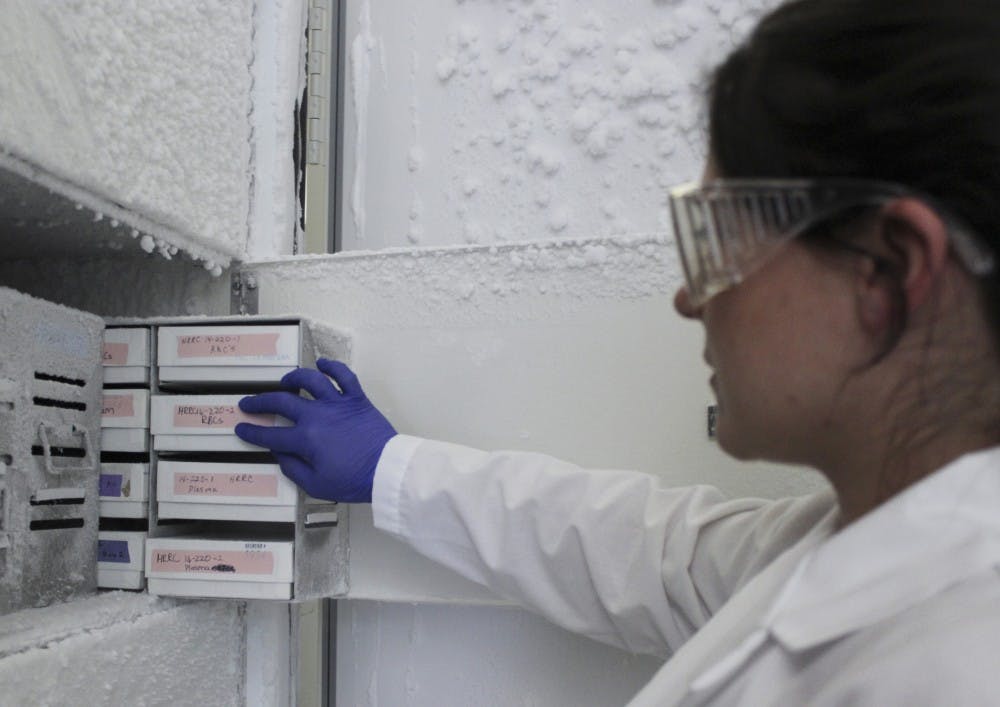A team of UNM researchers is focusing on identifying a new method that can predict cigarette smoke-induced injuries to blood vessels and potential therapeutic interventions to reduce them.
Young, healthy smokers have an increased risk of developing heart and blood vessel disease, which can be prevented or even reversed when it is diagnosed early, the researchers said.
Early diagnosis can prevent progression to more severe diseases like atherosclerosis, stroke, and heart attacks, the scientists said.
“We are studying omega-3 polyunsaturated fatty acids, also known as omega-3 fish oils. Omega-3 fish oil fatty acids can protect blood vessels from injury and the levels of these beneficial fatty acids commonly are reduced in cigarette smokers,” said Mary K. Walker, professor of pharmaceutical sciences at the College of Pharmacy.
The researchers are assessing the risk of having a heart attack or stroke in both smokers and non-smokers by measuring known predictors of the risk and the determining whether the levels of omega-3 fish oil fatty acids are also predictive of their risks, she said.
“We conducted a study with young, healthy, never and current smokers where we measured omega-3 fatty acids and blood vessel health,” said Elani Wiest, a fourth-year pre-doctoral student in Mary Walker’s laboratory.
The researchers found that omega-3 fatty acids are significantly reduced in young, healthy smokers and that those with the most impaired blood vessels had the lowest levels of omega-3 fatty acids, Wiest said.
The results suggest the acids may serve as a more cost-effective biomarker to identify young, healthy smokers with early onset heart and blood vessel disease, so doctors can treat them before more severe diseases develop, Wiest said.
“In the short term, individuals enrolling in the study will learn their risk of having a heart
attack or stroke in the next 10 years and will gain an understanding of what factors
contribute to their risk,” Walker said.
Wiest said the long term goal of this project is to develop a more cost-effective and easy-to-test evaluation to identify those smokers at greatest risk of developing heart and blood vessel disease, such as atherosclerosis, peripheral artery disease, stroke, and heart attack, prior to the appearance of clinical symptoms.
Get content from The Daily Lobo delivered to your inbox
“In the long term we hope to be able to identify those individuals who would benefit the most from more aggressive therapy to reduce their risk of having heart attack or stroke and to identify novel therapeutic strategies to reduce this risk,” Walker said.
The researchers are currently looking at these biomarkers in patients with high blood pressure, Wiest said.
“It is possible that the biomarkers identified in young, healthy smokers may serve not only as early identification of smokers with vascular impaired blood vessel function but also as a biomarker for future heart and blood vessel disease risk in smokers with early heart disease-like hypertension,” she said.
Walker said if individuals are concerned about their risk of having a heart attack or stroke, particularly if it has occurred in their family, they should work with their physician to identify and manage their risk factors.
“In addition to smoking cessation, it is important for individuals to take the medications that have been prescribed by their physician,” she said.
Sayyed Shah is the assistant news editor at the Daily Lobo. He can be contacted at assistant-news@dailylobo.com or on Twitter @mianfawadshah.






